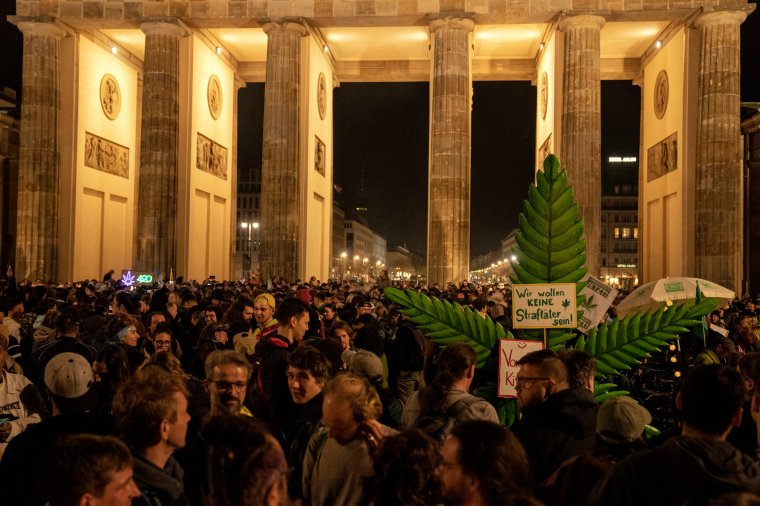Germany has brought in controversial new laws today that decriminalise possession of cannabis for adults following heated debate about legalisation.
From today, 1 April, all over-18s in Germany will be permitted to carry up to 25g of dried cannabis, possess up to 50g at home, and grow a small number of plants.
Households across Germany are permitted to grow a maximum of three cannabis plants each.
Restrictions to the law mean that people will not be allowed to smoke joints within sight of schools, sports centres, or in “pedestrian zones” between the hours of 7am and 8pm.
The legislation to legalise cannabis will then be extended later this summer to allow associations where people grow the drug to be formed.
From 1 July, growers associations or “social clubs” can be established with up to 500 members, which will be permitted to grow and distribute cannabis on a strictly not-for-profit basis.
Consuming the drug on the site of the association will not be allowed, and members must be over 18 and live in Germany.

The idea of cannabis clubs and allowing individuals to grow plants at home is to avoid Germany becoming a hotspot for drug tourism – since these are the only two ways it will be possible to obtain recreational cannabis legally, rather than in the cafes for which Amsterdam has become famed, for example.
Germany legalised cannabis for medical purposes in 2017.
The German government has said the purpose of legalisation is to curb the black market, tackle drug-related crimes, and ensure the safety of the product itself.
However, there has been criticism from opposition politicians and medical professionals over the health risks the new law could pose, particularly for young people.
“From our point of view, the law as it is written is a disaster,” Katja Seidel, a therapist at a drug addiction centre in Berlin, the Tannenhof Berlin-Brandenburg, told Agence France-Presse (AFP).
Opposition politician of the Christian Democratic Union and former chairman of the health committee, Erwin Rüddel, has previously told the German press that the policy will be “a disaster”, and that his party would reverse the ruling should they be back in government.
Mr Rüddel called for a Europe-wide decriminalisation strategy encompassing electronic registration of users and the expansion of addiction support services among other measures, rather than individual states “experimenting” with cannabis policies.
The German health minister Karl Lauterbach has promised a campaign to educate young people about the health risks of cannabis and to boost prevention programmes.
The federal centre for health education, which is linked to the health ministry, has told AFP it is expanding its prevention officers, while the state of Bavaria is testing out an online training course designed to prepare teachers to approach the topic in the classroom.
Steffen Geyer, long-time cannabis activist and head of the association of Cannabis Social Clubs, said he expected that the law would mean 180,000 fewer prosecutions in the next year.
“We will no longer be the black sheep of the recreational community. We will be just like the people who use alcohol, or use chocolate, or coffee, or tea,” Mr Geyer told Sky News.

